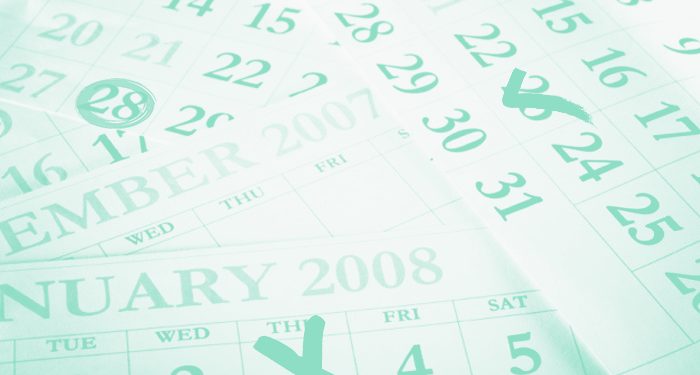Figuring out how to release an album without going completely broke is getting more difficult by the day.
Putting out an album doesn’t guarantee you’ll see a return or even break even on your investment. Music sales in the United States show that while music streaming services like Spotify and Apple Music continue to gain in popularity, it’s increasingly difficult to see significant returns on an album release without a rock solid release plan.
But don’t give into despair just yet.
The truth is, recording and releasing music has actually become MORE accessible and cost effective for independent musicians. DIY tools like inexpensive digital music distribution and online mastering are just a few of the options available for releasing a high-quality album without spending a ton of money.
But it’s the return on your initial investment that’s changed…
Streaming has altered how artists get paid, and there’s not a lot of music distribution services out there that let artists keep 100% of royalties after the platforms take their cut.
So how can you make your album release a success without burning down your accounts? And more importantly, how do you ensure your investments are wise?
In this article, I’ll give you 5 useful tips on how to save money—and your sanity—when releasing an album.
Solid, impactful albums don’t just happen by accident or overnight.
I’ve actually used these tips with the release of two of my own self-released albums and an EP. They’ve helped my bands save thousands of dollars while still being able to enjoy the benefits of radio play and significant press coverage.
1. Determine what skills and resources you have and prioritize
Self-releasing means taking care of recording, releasing and promoting your album on your own.
Think of all the things a big label (ideally) does for its artists: Everything from funding and recording an album to getting blogs and media outlets to care about it.
If you’re releasing without a label then you are your own label. So you’ll have to think like a label and do what a label does during your release. That means taking care of steps like funding and budgeting your recording process, reaching out to blogs and media outlets and calendaring your promotion strategy.
If you intend to do any of these things well, it’ll take tons of skill, effort and non-monetary resources to make it happen. It may seem like a huge task, but it’s actually fairly simple with the right plan.
This includes the obvious stuff like recording and producing, but it also applies to skills that go beyond musicianship, including:
- Writing (press releases, artist bios)
- Research (finding blogs and media outlets to contact)
- Social media management (engaging with your fans)
- Graphic design (album art, social profiles, press kits)
Have an honest discussion with your band or yourself about how much you can realistically afford to invest in an album long before you begin recording. Knowing your limitations as far as resources go, and prioritizing certain tasks around your release will show you what’s important and how to stay within your budget.
Separate tasks among band members according to each person’s strengths. Spread the workload in a fair way so you actually get around to everything and no one burns out.
For example: If your band has a lo-fi sound, the bulk of your budget might be better off being directed towards PR and marketing than recording and producing.
Or maybe you have tons of contacts and hustle, but no tools to record, mix and produce your record. So your budget should go towards studio time or professional help with your actual sound.
Musicians aren’t typically known for their planning and prioritizing skills, but setting a realistic budget and timeline for the release of your album in advance is the most important tip in this entire article.
Musicians aren’t typically known for their planning and prioritizing skills, but setting a realistic budget and timeline for the release of your album in advance is the most important tip in this entire article.
Lay out all your skills and resources and decide what areas need focus and what you’re already good at. To build a puzzle you have to see all the pieces first.
2. Use free ways to build excitement around your release
The business side of your music might seem boring, but if you can find a way to approach promotion and fan engagement with the same energy, enthusiasm and creativity you put toward your music, you’ll have a much higher chance of getting the world to notice your album.
Solid, impactful albums don’t just happen by accident or overnight.

Find a way to approach promotion and fan engagement with the same energy, enthusiasm and creativity you put toward your music, you’ll have a much higher chance of getting the world to notice your album.
At minimum, give yourself two to four months between when your album is done to when it’s slated to for release to get the most out of your music promotion. Choose a digital release platform that lets you select a date for your album’s release well in advance so you have a solid date to plan around.
A long window for promotion will give you plenty of time to build up anticipation around your record. We go deep into how to promote your music in our free music promotion e-book. But simply put: When it comes to free promotion, social media is your best weapon:
Use your social media channels to share a couple of your singles (collect royalties early), share some video of a live gig or your recording process, or do a journal style posting strategy that tells the story of your album as it progresses.
No matter what you post, try to keep your fan base in the loop about your creative story and promote your music at the same time. Online music promotion is a free, effective way to generate excitement around your album and build anticipation for the release date. So it makes sense to give your promotion strategy the time and resources it needs to work.
Social media and other channels for promoting your own release have made it possible—with the right amount of work—to see success from DIY efforts more than ever before. And the best part? No one’s taking a cut between you and your sales when you manage it yourself.
3. Decide between DIY or the studio for recording
Investing in mics, a mixing board, recording software and other sound equipment is one way you can save money during the recording process by doing it yourself. But remember, it will still take some money, skill and most of all, time to record, produce and mix an album well.
Remember, it doesn’t have to be all-or-nothing when it comes to DIY recording, mixing and producing. Outsourcing certain tasks like getting vocals professionally tracked can save you hundreds or even thousands.
The same idea applies when it comes to mixing songs on an album. Mixing is something you can learn yourself with online mixing tutorials and lots of practice, but it’s something you should only do if you’re passionate about the sound engineering side of music.
The DIY approach to recording will work well for some musicians, but others will be better off recording in a studio with professional help. It all depends on what skills you bring to the table to begin with.
Hot tip: Don’t want to cough up thousands to buy recording gear? Rent it instead.
Hot tip: Don’t want to cough up thousands to buy recording gear? Rent it instead. Grab some gear for a few days for a fraction of the cost it would take to own it. Plus, rentals have to be returned at some point, so it’s a great option if you work better under some healthy time limitations.
Most major cities have a local music store that rents out more common types of gear, but working in your community or through local online communities to find loaners can work too. Temporary swaps help everyone!
The other option is paying for studio time. If your budget allows it and you’re covered in other important areas of releasing, studio time can be feasible.
If you do end up opting for studio time, have your songs perfectly practiced and planned for recording long before you book studio time. If not, you risk spending hundreds or thousands outside your budget for studio time that could have been avoided.
4. Don’t break the bank without testing all the options
Professional mastering services can cost your band thousands and balloon your budget real quick. Fortunately there are alternatives to the traditional methods for finishing a record. LANDR gives your project high quality mastering that’s “‘as good as’ what a Mastering Engineer can produce” at a fraction of the cost.
If you decide to go with professional studio mastering, use LANDR mastering to get a rough idea of what your mixes will sound like mastered. It’s a great reference tool to preview what your project will sound like finished before you lay down all that cash for mastering.
It will also give you insight into your mixing as well. If your mixes aren’t ready for mastering, you simply won’t get a good master back. So either way, LANDR is a great tool for making sure your investment is a good one.

5. Be your own PR
Love it or hate it, PR and radio campaigns are an integral part of spreading the word about your band’s release. You can save anywhere from $2,000-$15,000 by creating your own PR and radio campaigns, but you’ll have your work cut out for you.
The work here is tedious and usually pretty thankless—that’s why it’s so expensive to go pro—but with enough time, effort and planning, your band can do it alone and see some positive results.
Promotion and press is one of the most accessible parts of releasing an album—especially with the tools and platforms available to artists today.
Necessary skills here include tasks like:
- Creating spreadsheets of blog and press contacts
- Crafting persuasive pitches over email
- Sending out press kits to radio stations or online media outlets
Promotion and press outreach is one of the most accessible parts of releasing an album—especially with the tools and platforms available to artists today.
But it’s also the part of a release that takes the most amount of time and energy. Budget the right amount of time for promoting your release strategy and commit to it early for best results.
If you’re looking for more in-depth information on how to reach out for press and promote your album, take some time to read our music promotion guide. It covers how to boost posts on Facebook, crafting reach-out emails, and smart strategies for finding the right press outlets for your music.
Record, release, repeat
Releasing your music is a happy moment. Take the stress out with the right plan, and rest easy with the knowledge that you’ve done everything the smart way leading up to your release day.
Saving some dough to invest in your next album is always a safe bet.
Successfully promoting a record comes down to time and commitment to making it work. The truth is, the more time and dedication you’re willing to put towards your release, the less you’ll end up having to spend. The free tools are there, you just have to use them.
When your records start generating some revenue, don’t forget that your next record needs funding too. Saving some dough to invest in your next album is always a safe bet.
With a solid release strategy and strong understanding of where to focus your resources, every release will be smooth and successful.